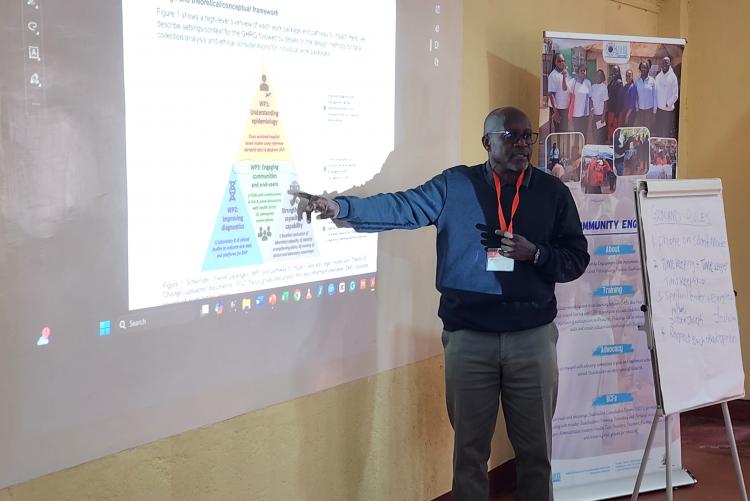Loitokitok, Kenya — The KAVI-Institute of Clinical Research (KAVI-ICR) is currently hosting a co-creation workshop at Loitokitok Sub County Hospital to introduce the Zoonotic causes of Acute Febrile Illness (ZAFI) project. The meeting brings together community members, teachers, Community Health Promoters (CHPs), nurses, veterinarians, disease surveillance members, doctors, sub-county medical officer of health Loitokitok Dr. Chesum, Loitokitok sub-county medical superintendent.
The workshop aims to build a shared understanding of Zoonotic Acute Febrile Illness (ZAFI) in children within Loitokitok by bringing together community members, caregivers, and stakeholders. It provides a platform for sharing lived experiences of febrile illnesses, while also identifying the key challenges and gaps in prevention, diagnosis, and management. Through participatory discussions, the workshop seeks to co-create practical and culturally appropriate solutions that can effectively address these challenges. In addition, participants will work towards selecting and forming a Community Advisory Board (CAB) to strengthen collaboration and promote the One Health approach. Ultimately, the workshop is designed to enhance community awareness of zoonotic diseases, foster collective responsibility, and build sustainable systems for safeguarding child health.
ZAFI, funded by the NIHR Global Health Research Group, aims to improve diagnosis and management of zoonotic infections in children across sub-Saharan Africa. The project combines research with community engagement to ensure solutions are practical and locally relevant.
During the workshop, participants will discuss common challenges such as frequent childhood fevers often treated as malaria, limited access to diagnostics, and risks linked to close interaction with livestock and wildlife. The newly formed CAB will provide ongoing feedback, helping the project team design interventions that reflect community needs.
“This workshop ensures research is done with communities, not just about them,” said Professor Omu Anzala, Kenya Country Principal Investigator based in KAVI-Institute of Clinical Research at the University of Nairobi. “By working together, we can build trust and develop solutions that save lives.”
Funding Acknowledgement
This research was funded by the NIHR (NIHR156365) using UK international development funding from the UK Government to support global health research.
- Log in to post comments

